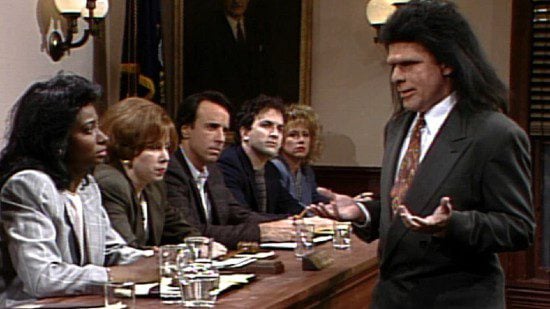• I love whenever someone helps me hear old words in a new way. Richard Beck does this with some very familiar words that sometimes grow dull with familiarity: “Hallowed be thy name.”
Beck reads that phrase through the lens of the prophets, specifically Ezekiel 39 — another passage that, for me, long ago had the edges sanded off from rough handling. That’s part of Ezekiel’s proclamation of justice against Gog and Magog. It’s a passage I’ve seen twisted so often to justify some “Bible-prophecy scholar’s” ideas about the Soviet Union that it’s become hard for me to see in any untwisted form.
Following Ezekiel, Beck says “Hallowed be thy name” is not so much a statement of praise, but “a petition, a prayer for God to act in hallowing God’s own name. God hallowing God’s name marks the end of Israel’s exile as God gathers the scattered sheep of Israel. God hallows God’s name by restoring Israel.”
Read this way, “petition” may understate the matter. It’s a challenge, almost an accusation. It’s a way of saying, “God, you better get on the ball and prove you’re who you say you are, because the reign of injustice is ruining your good name.”
It’s closer to “Chant down Babylon” than it is to any of the praise choruses we sing, glibly hurling shallow compliments at the Almighty. Instead, like the biblical prophets and Psalmists often do, it calls that whole “Almighty” claim into question, somewhat rudely.
“Put up or shut up,” may seem like an impertinent prayer, but only for those of us not living in exile and not oppressed by injustice. For those who are — for the people who actually wrote the Bible and those they actually wrote it for — it’s an entirely appropriate and necessary prayer.
We mutter such things, out loud and in unison, every Sunday without fully thinking about what we’re saying. It reminds me of what Annie Dillard said: “It is madness to wear ladies’ straw hats and velvet hats to church; we should all be wearing crash helmets.”
• Christa Blackmon riffs on the lingering appeal of a Golden Oldie: “The Time Johnny Cash Covered Depeche Mode.” It’s about maybe my favorite song from the British band, the one with guitars — “Personal Jesus.”
That song came out in 1989, and for a sense of how old that is, consider that the lyrics refer to a telephone as something that one could sit by. “Pick up the receiver” it says — a reference to bygone technology that now seems to belong in the same category as “Surrey With a Fringe.”
“Personal Jesus” was, Blackmon says, “a song that your church youth leader can’t decide if he hates.” That’s spot on. I was a senior at an evangelical college when this single came out, and a DJ for the campus radio station where we couldn’t quite figure out what to make of this song. It wasn’t reverent, but it didn’t seem to be blasphemous either. It seemed to have something to do with the “God-shaped hole” we sometimes talked about, but not in the nice, safe way that our Christian music expected/required.
Whatever the song meant in 1989, it was — as Blackmon suggests — interpreted/reinterpreted definitively in 2002, when Johnny Cash recorded it, releasing it as the B-side to his cover of NIN’s “Hurt.” Pairing those two songs as flip-sides of one another seems to offer volumes of commentary on both.
Anyway, Blackmon also shares this video, from Irish singer-songwriter Lisa Hannigan, which she says is her second-favorite rendition of the song. And now it is mine too:
















